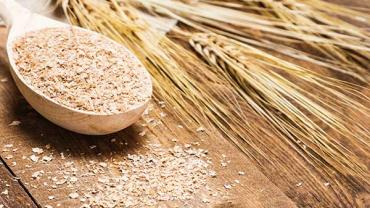
Fiber is one of the most under-consumed nutrients, putting individuals at increased health risks, according to the newest dietary guidelines published by the USDA in 2015. The report also cites a low intake of vegetables, fruits, and whole grains as the primary cause of this nutritional deficiency. Although whole grains aren’t the most effective way to increase fiber, consuming adequate amounts of fresh vegetables and fruits certainly will achieve a better fiber score.
Rather than turning to a better diet, many adults choose fiber supplements to make up the difference, but for many this can be a poor long term solution. When found in its natural dietary form, fiber is coupled with a plethora of vitamins and minerals that will synergistically enhance its health benefits. Each stage of life relies on adequate amounts of fiber, vitamins, and minerals to maintain optimal health, but pregnancy is a unique stage of a women’s life in which adequate dietary fiber is imperative. Not only will optimum dietary fiber curtail many pregnancy-associated complications, it will also lower her child’s risk of health problems.
Dysbiosis and Gestational Diabetes
Gut microbiota dysbiosis is a root cause of many health problems, but especially digestive and metabolic diseases such as insulin resistance, type 2 diabetes, and obesity. Many adults exist with various degrees of dysbiosis, but the changes associated with pregnancy often exacerbate its risks, which can be transferred to the infant during birth and increase the child’s risks for metabolic health problems later in life. Pregnancy naturally induces a state of inflammation in the gut, allowing preexisting pathogenic bacteria to grow.
Adequate dietary fiber has been shown to protect against the overgrowth of Collinsella (of the phylum Actinobacteria) during pregnancy. Collinsella has been directly associated with higher levels of circulating insulin, altered intestinal cholesterol absorption, decreased liver glycogenesis, and increased triglyceride synthesis. This bacteria also reduces the expression of tight junction proteins, increasing gut permeability and metabolic endotoxemia. In pregnant women, increased Collinsella is most often associated with dysregulated blood sugar and altered insulin metabolism, which can lead to gestational diabetes.
Gestational diabetes carries numerous health complications including hypertension, pre-eclampsia, the need for a cesarean section birth, large birth weight causing labor and delivery complications, and increased risk for cardiovascular disease and type 2 diabetes. With increasing prevalence, there has been an effort to reduce the risks of developing this condition through dietary measures, and fiber intake is a critical player as it favorably modulates the gut microbiota. Collinsella is commonly seen in overweight and obese pregnant women and may explain, in part, why this population also experiences higher risks of gestational diabetes.
In a study of 130 overweight and obese pregnant women whose dietary fiber intake was measured while their gut microbiota was analyzed showed that “Collinsella abundance correlated positively with circulating insulin, independent of maternal BMI, but negatively with dietary fiber intake.” Therefore, adequate fiber intake altered the gut microbiota to improve insulin levels and decrease risks of metabolic complications such as gestational diabetes, protecting the health of the infant as well.
Celiac Disease
More recently, a high dietary fiber intake during pregnancy has also been shown to reduce the risk of celiac disease in the child. Researchers found that for every 10 grams of fiber consumed daily during pregnancy, the child’s risk of celiac disease was reduced by 8 percent, and if pregnant women consumed over 45 grams of fiber daily, their child’s risk for celiac disease was cut by one third compared to children whose mother’s consumed less than 19 grams of fiber per day. These results were taken from a population-based study that assessed over 88,000 children born between 1999 and 2009. When these findings were announced by the lead researcher at the 52nd Annual Meeting of the European Society of Paediatric Gastroenterology, Hepatology and Nutrition (ESPGHAN) in 2019, he could not comment on the reason for the association; however, other studies have found a close association between the composition of gut microbiota, altered immunity, and celiac disease. Therefore, the association is likely linked to the ability of dietary fiber to positively modulate the microbiota of the gut.
Sadly, most adults consume only half the recommended amount of daily fiber which, is 25 grams for women and 35 grams for men. If women are only consuming an average of 12.5 grams of fiber each day, they are falling far below the quantity required to foster good health both in themselves and (should they become pregnant) in their offspring. With metabolic conditions and gluten allergies/intolerances on the rise, it is important that practitioners communicate the necessity of a high-fiber diet, and especially during pregnancy.